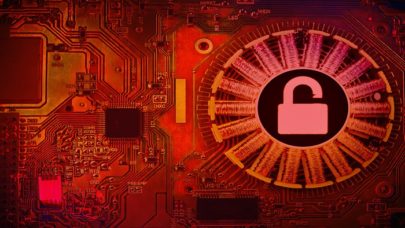


NSB Issues Urgent Call for US Science Policy Response
In a somewhat unusual action, the National Science Board, which oversees the National Science Foundation, today issued a policy brief calling for swift dramatic action to energize US science. "It …

Four Steps to Ensure GenAI Safety and Ethics
With the deployment of generative artificial intelligence (GenAI) happening at a rapid pace, organizations of all sizes are tasked with navigating the challenges around implementation, especi …

Processor Security: Taking the Wong Path
May 9, 2024
More research at UC San Diego revealed yet another side-channel attack on x86_64 processors. The research identified a new vulnerability that allows precise con Read more…

Stanford HAI AI Index Report: Science and Medicine
April 29, 2024
While AI tools are incredibly useful in a variety of industries, they truly shine when applied to solving problems in scientific and medical discovery. Research Read more…

Nvidia Exec: Secure AI Economies Could Help Everyone Profit
April 2, 2024
An Nvidia executive shared a bold vision of AI economies where individuals and companies can sell their AI assets, such as data, software, or models, without co Read more…

SchedMD Releases Updated Slurm Version to Address Security Issues
December 21, 2023
As posted on the [slurm-announce] mailing list, some important security issues effect all Slurm users (contact your sysadmins). From the notification: S Read more…

HPC Hardware Contracts: Backlash as Security Ignored in Performance Pursuit
November 16, 2023
The security of supercomputers has been grossly ignored in the pursuit of horsepower. Still, there is a growing realization that security is needed to prevent b Read more…

The DOWNFALL-INCEPTION Mitigation Sequel Now Showing
August 24, 2023
Several weeks ago, we reported on the DOWNFALL and INCEPTION security issues occurring in both Intel and AMD processors. Here is a short recap for those who mis Read more…

Summer Blockbuster: DOWNFALL-INCEPTION In CPUs Near You
August 9, 2023
Hot on the heels of proposing AVX-512 vector optimizations as away to squeeze more cycles out of CPUs a new AVX vulnerability was announced by Intel. The new ex Read more…

Catch the Flying Qubit – AWS Center for Quantum Networking
July 11, 2023
Quantum networking – like quantum computing – holds tantalizing promise. Rather than use classical bits, quantum networks work with quantum bits (qubits) an Read more…

- Click Here for More Headlines

Whitepaper
From Hallucination to Reality
As Federal agencies navigate an increasingly complex and data-driven world, learning how to get the most out of high-performance computing (HPC), artificial intelligence (AI), and machine learning (ML) technologies is imperative to their mission. These technologies can significantly improve efficiency and effectiveness and drive innovation to serve citizens' needs better. Implementing HPC and AI solutions in government can bring challenges and pain points like fragmented datasets, computational hurdles when training ML models, and ethical implications of AI-driven decision-making. Still, CTG Federal, Dell Technologies, and NVIDIA unite to unlock new possibilities and seamlessly integrate HPC capabilities into existing enterprise architectures. This integration empowers organizations to glean actionable insights, improve decision-making, and gain a competitive edge across various domains, from supply chain optimization to financial modeling and beyond.
Download Now
Sponsored by CGT Federal
Whitepaper
Why IT Must Have an Influential Role in Strategic Decisions About Sustainability
Data centers are experiencing increasing power consumption, space constraints and cooling demands due to the unprecedented computing power required by today’s chips and servers. HVAC cooling systems consume approximately 40% of a data center’s electricity. These systems traditionally use air conditioning, air handling and fans to cool the data center facility and IT equipment, ultimately resulting in high energy consumption and high carbon emissions. Data centers are moving to direct liquid cooled (DLC) systems to improve cooling efficiency thus lowering their PUE, operating expenses (OPEX) and carbon footprint.
This paper describes how CoolIT Systems (CoolIT) meets the need for improved energy efficiency in data centers and includes case studies that show how CoolIT’s DLC solutions improve energy efficiency, increase rack density, lower OPEX, and enable sustainability programs. CoolIT is the global market and innovation leader in scalable DLC solutions for the world’s most demanding computing environments. CoolIT’s end-to-end solutions meet the rising demand in cooling and the rising demand for energy efficiency.
Download Now
Sponsored by Lenovo
Advanced Scale Career Development & Workforce Enhancement Center
Featured Advanced Scale Jobs:
SUBSCRIBE for monthly job listings and articles on HPC careers.
HPCwire Resource Library
HPCwire Product Showcase
© 2024 HPCwire. All Rights Reserved. A Tabor Communications Publication
HPCwire is a registered trademark of Tabor Communications, Inc. Use of this site is governed by our Terms of Use and Privacy Policy.
Reproduction in whole or in part in any form or medium without express written permission of Tabor Communications, Inc. is prohibited.






































